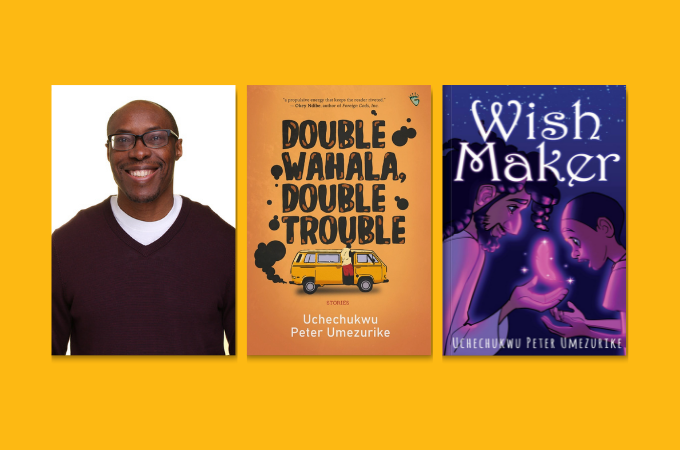
Guest contributor Chijioke K. Onah, a PhD student in the Literatures in English Department at Cornell University, spoke with Uche Umezurike, an Assistant Lecturer at the University of Alberta, on his forthcoming books Double Wahala, Double Trouble (a collection of short stories), Wish Maker (a children’s book), and his research in gender and diaspora studies.
Double Wahala, Double Trouble is a collection of eleven short stories scheduled to be published this fall. The stories take on depictions of everyday life and have been praised by a variety of critics and authors alike. Okey Ndibe, author of Foreign Gods, Inc. and Arrows of Rain, writes that “Umezurike’s stories are full of wondrous gifts: a poet’s ear for language, a depth of insight into the souls of memorable characters straining against often implacable fate and other forces, and a propulsive energy that keeps the reader riveted. He’s a delight to discover!”
Also releasing soon, just in time for the holiday season, is Uche’s children’s book titled Wish Maker. The story follows Ebele, a young boy, who dreams of surprising his widowed mother for Christmas with an abundance of presents. He then meets a stranger in the community who teaches him that “there is more to Christmas than just gifts, and that kindness is a virtue rewarded by great fortune.”
Umezurike is an award-winning poet, children’s novelist, literary journalist, and essayist, who has published his critical writing in NORMA: International Journal for Masculinity Studies, Journal of African Cultural Studies, Cambridge Journal of Postcolonial Literary Inquiry, Canadian Journal of African Studies, Tydskrif vir Letterkunde, Postcolonial Text, and Cultural Studies. His poems and short fiction have been widely anthologized online and in print magazines. Umezurike is a co-editor of Wreaths for Wayfarers, an anthology of poems, and has interviewed several writers for Brittle Paper, Africa in Words, Read Alberta, and Prism International. Umezurike was recently awarded a Provost’s Postdoctoral Awards for Indigenous and Black Scholars at the University of Calgary.
Chijioke Onah
In Double Wahala, Double Trouble, I couldn’t help but notice the strength of your female characters vis-à-vis the erratic men in their lives (of which Tobe in “Flesh of my Flesh” is emblematic). Is this a conscious choice, and if yes, why?
Uche Umezurike
Thanks for that salient observation, Chijioke. I don’t know if I succeeded in creating strong female characters in my fiction, but I hope I did. I think of strength not in its physical, but instead a moral, character – a quality emanating from within a person. It has nothing to do with brawns and physicality but everything to do with an ethical disposition. Dr. Onyemaechi Udumukwu at the University of Port Harcourt encouraged me during my master’s program to pay more attention to the nexus between male power and female oppression. I teach a course on masculinity at the University of Alberta and always encourage students to contemplate what it means to be a man or woman in contemporary society and how masculinity is usually about power. Why the anxiety around strong and independent women? Why do some men think that by objectifying or subjugating women, they can bolster their manhood? Why do they cling to a fantasy of male power? What is at stake for such men? I think these are questions literature can help us understand, and so it is crucial that creative writers portray women in their complexity and not as props and prosthetics to project male presence. However, we cannot ignore the power of representation. The images of men or women we create and circulate in society have much impact on people. Like words, images constitute and reflect how we conceive of the world, how we translate and transmit this conception amongst ourselves, and how such a conception can empower or decimate individual and communal lives. In more precise terms, representation matters: how we represent our ideas of men and women remains relevant to what norms our culture endorses and valorizes.
Chijioke Onah
Stories like “Move On” require a lot of care with words and narrative strategy to be effective. As a poet, did this demand for economy come naturally to you? And what are the other ways that your experiences in poetry influence your narrative choices as a storyteller?
Uche Umezurike
That’s a fascinating question. Poetry has offered me a means to think of words in terms of images and the associations that words can conjure. When I’m writing a short story, I reflect on the texture of the action, scene, or character I am describing. I try to write within a frame of structure, sound, and sense. So, to a significant extent, poetry enriches my fiction. It’s no easy task, but I strive to write to vividly engage the senses, evoke images for the mind, and capture scenes in precise and evocative tones. I’m inclined to think of the sensuality of language when I write, be it prose or poetry. You could call me a sucker for imagery. I have received compliments from accomplished writers, such as Okey Ndibe, Helon Habila, Peter Midgley, Niq Mhlongo, and Henrietta-Rose, that Double Wahala, Double Trouble is poetic. I’m glad that you found it poetic as well.
Chijioke Onah
“This is How I Remember Her” deals with the touchy issue of mental health in Nigeria. Why did you write this story, and why does it matter to you?
Uche Umezurike
It is a conversation we must keep having in Nigeria. I remember a chat I had with two friends in Edmonton, a few months after we’d arrived at the University of Alberta in 2016. My friends expressed surprise that Canadians could unashamedly speak about their struggles with mental health. One of my friends then mentioned that we were fortunate in Africa, that mental health wasn’t a crisis there, but I told him he was wrong because we never discussed it within our families and friends. We were prone to stigmatize anyone who mentioned mental health challenges. Moreover, we hadn’t fostered the correct vocabulary, mindset, and space to have difficult conversations about mental health. In addition, we had very little or no data about this demographic. In short, we lived in denial of its occurrence in our society. So, “This is How I Remember Her” is one way I attempted to present what mental health crisis might look like for a family. It was a harrowing story for me to write, mainly because I have known children who had lived with the trauma of broken homes and violent parents. I hope readers of Double Wahala, Double Trouble would further ongoing conversations around mental health and, more importantly, work to find practical means to address this prevalent issue within their respective communities.
Chijioke Onah
“Face Like a Mask” and “Wild Flames” in Double Wahala, Double Trouble deal with youth militancy and oil politics. Also, there are a few references to crude oil and gas flare in your children’s book, Wish Maker. Why this interest in this subject?
Uche Umezurike
I still remember some of the conversations around poetry and petroculture I had with Dr. Isidore Diala while he was editing my book of poetry at the time. My first poetry collection, Dark through the Delta, deals with themes of oil capitalism and environmental degradation. The subject of youth militancy and oil politics has fascinated me since 2004 because I am from Egbema, an oil-producing community in Imo State. I am familiar with oil slick and gas flaring and have witnessed the ongoing despoliation of my community and elsewhere by Shell and AGIP. Unfortunately, the whole Niger Delta is one of the regions in the world most ravaged by oil extraction. This reality has incited fractions and bloodshed in communities, pitching local citizens against each other and sometimes militants against oil corporations. Much of Nigeria’s stagnation seems rooted in oil politics, the avarice, distrust, and plunder it has spawned since 1960. Therefore, it wasn’t difficult for me to write these stories since they remain our reality as Nigerians. But, maybe, I was more interested in understanding the selfless or selfish motivations that incite such communal clashes and killings.
Chijioka Onah
In Wish Maker, you created this character, a shaggy looking stranger, who eventually bonds with Ebi, a curious nine-year-old boy. The book is about confronting one’s fears, but it also discusses openness. Could you speak a little more about this?
Uche Umezurike
I enjoyed writing about the stranger, maybe because lately, I have become more interested in exploring the connections between openness and strangeness. The idea of openness is also a theme that orients my doctoral study of masculinity in Nigerian fiction. So, I wanted to further explore it in Wish Maker, mainly through the character of Ebi, a young boy dealing with ridicule from his peers because his poor mother cannot afford to buy any Christmas presents for him. I sometimes think that the fear or refusal to be open to the experience or condition of otherness might be at the heart of discrimination and dehumanization of other people. Yet, to open oneself to another, perhaps a stranger, is to expose the flesh to risk, harm, or death. Of course, some people take advantage of one’s openness, but other people forge affinity through openness. Still, what is it about the strange or foreign that repulses us? That is a question I’m trying to understand. I hope readers of Wish Maker would also ponder that question.
Chijioke Onah
Your new project as a Provost’s Postdoctoral fellow at the University of Calgary is titled Desiring Home: Blackness, Belonging, and Diaspora in Canada (congratulations). As a creative writer, however, your stories still engage with Nigeria as its home even when you are physically in Canada for a couple of years now. How do you negotiate this “double wahala” as a writer?
Uche Umezurike
Maybe, this is more than double wahala! Well, I suppose it’s an ongoing negotiation, this question of home and belonging for any immigrant. First, I feel honoured that the University of Calgary has awarded me a postdoctoral fellowship, so I am still reeling from the news. I have Dr. Clara Joseph to thank for supporting my application. Second, the research I will undertake at Calgary is about home in its complexity: how African authors and filmmakers imagine or reimagine home in Canada and the challenges and prospects underlying such re-imaginings. Third, as an African immigrant scholar and writer, I can’t help but think about what home means at this point, especially if I recall Warsan Shire’s affecting poem about home. I also teach poetry to a group of exceptional undergraduate students; in our class discussion, we discuss how poets deal with the idea of home, so I’m still negotiating the wahala of home, the wahala of creative and critical engagements. And yet, the wahala persists because life is unsurprisingly fraught with wahala. I guess wahala is part of what adds some complications to life and possibly makes us appreciate each other’s fragility, vulnerability, aspiration, tenacity, and pursuit of a different structure of relationship, kinship, and community.
Thank you Chijioke and Uche for this interview! We cant wait to dive into these books this fall.


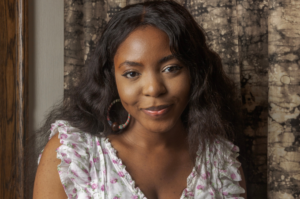
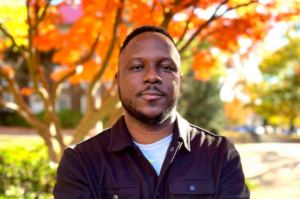
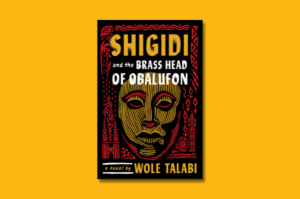
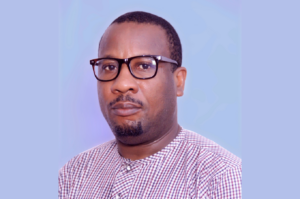

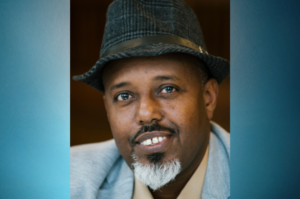

Zaharaddeen I. Kallah November 05, 2021 05:12
Thanks for the the interview. It's really educative and interesting. It is true that we don't want to talk about mental health in Africa. Probably because of stigmatisation. But, as humans is something common in many races.